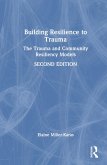L S Vygotsky
Educational Psychology
L S Vygotsky
Educational Psychology
- Gebundenes Buch
- Merkliste
- Auf die Merkliste
- Bewerten Bewerten
- Teilen
- Produkt teilen
- Produkterinnerung
- Produkterinnerung
Published in English for the first time, this classic work, completed in 1926, is a rare find. Often referenced but rarely seen outside of excerpts in Russian publication, the well-written and highly opinionated text presents readers with a historical trek through the mind of one of the world's most foremost psychological thinkers of the 20th century.
Andere Kunden interessierten sich auch für
![Anti-Oppressive Psychotherapeutic Practice Anti-Oppressive Psychotherapeutic Practice]() Florie St AimeAnti-Oppressive Psychotherapeutic Practice187,99 €
Florie St AimeAnti-Oppressive Psychotherapeutic Practice187,99 €![The Therapeutic Frame in the Clinical Context The Therapeutic Frame in the Clinical Context]() Maria LucaThe Therapeutic Frame in the Clinical Context152,99 €
Maria LucaThe Therapeutic Frame in the Clinical Context152,99 €![Treating Complex Trauma Treating Complex Trauma]() Mary Jo BarrettTreating Complex Trauma163,99 €
Mary Jo BarrettTreating Complex Trauma163,99 €![Equine-Assisted Mental Health for Healing Trauma Equine-Assisted Mental Health for Healing Trauma]() Equine-Assisted Mental Health for Healing Trauma186,99 €
Equine-Assisted Mental Health for Healing Trauma186,99 €![Anti-Oppressive Counseling and Psychotherapy Anti-Oppressive Counseling and Psychotherapy]() Jason D BrownAnti-Oppressive Counseling and Psychotherapy163,99 €
Jason D BrownAnti-Oppressive Counseling and Psychotherapy163,99 €![Building Resilience to Trauma Building Resilience to Trauma]() Elaine Miller-KarasBuilding Resilience to Trauma174,99 €
Elaine Miller-KarasBuilding Resilience to Trauma174,99 €![Single Session Thinking and Practice in Global, Cultural, and Familial Contexts Single Session Thinking and Practice in Global, Cultural, and Familial Contexts]() Single Session Thinking and Practice in Global, Cultural, and Familial Contexts186,99 €
Single Session Thinking and Practice in Global, Cultural, and Familial Contexts186,99 €-
-
-
Published in English for the first time, this classic work, completed in 1926, is a rare find. Often referenced but rarely seen outside of excerpts in Russian publication, the well-written and highly opinionated text presents readers with a historical trek through the mind of one of the world's most foremost psychological thinkers of the 20th century.
Hinweis: Dieser Artikel kann nur an eine deutsche Lieferadresse ausgeliefert werden.
Hinweis: Dieser Artikel kann nur an eine deutsche Lieferadresse ausgeliefert werden.
Produktdetails
- Produktdetails
- Verlag: Taylor & Francis
- Seitenzahl: 416
- Erscheinungstermin: 11. August 1997
- Englisch
- Abmessung: 235mm x 160mm x 27mm
- Gewicht: 717g
- ISBN-13: 9781878205155
- ISBN-10: 1878205153
- Artikelnr.: 21504775
- Herstellerkennzeichnung
- Libri GmbH
- Europaallee 1
- 36244 Bad Hersfeld
- gpsr@libri.de
- Verlag: Taylor & Francis
- Seitenzahl: 416
- Erscheinungstermin: 11. August 1997
- Englisch
- Abmessung: 235mm x 160mm x 27mm
- Gewicht: 717g
- ISBN-13: 9781878205155
- ISBN-10: 1878205153
- Artikelnr.: 21504775
- Herstellerkennzeichnung
- Libri GmbH
- Europaallee 1
- 36244 Bad Hersfeld
- gpsr@libri.de
L.S. Vygotsky,
Editors Note
Preface
Introduction
Chapter 1 Pedagogics and Psychology
Pedagogics
Psychology
Educational Psychology
Chapter 2 The Concept of Behavior and Reaction
Behavior and Reaction
The Three Components of a Reaction
Reaction and Reflex
The Inherited Reactions and the Acquired Reactions
Inherited or lJnconditional Reflexes
Instincts
Origin of Inherited Reactions
Conditional Reflexes
Super
reflexes
Complex Forms of Conditional Reflexes
Chapter 3 The Most Important Laws of Higher Nervous Activity in Man
The Laws of Inhibition and Disinhibition
Psyche and Reaction
Animal Behavior and Human Behavior
The Build
up of Reactions into Behavior
The Principle of the Dominant in Behavior
Human Constitution and Human Behavior
Chapter 4 Biological and Social Factors in Education Activity of the Educational Process and its
Participants On the Goals of Education from the
Psychological Standpoint Education as Social Selection
Chapter 5 The Instincts as the Subject, Nkclianism, and Means of Education
Origin of the Instincts
Relationship Between the Instincts, Reflexes, and Reason
Instincts and the Biogenetic Law
Two Extreme Views of the Instincts
Instincts as a Mechanism of Education
The Concept of Sublimination
Education of the Sex Instinct
Psychological Preconditions of Co
education
Pedagogical Application of the Interest
The Child's Interest
The Pattern of the Child's Interest
The Psychological Value of Games
Chapter 6 Education of Emotional Behavior
The Concept of Emotion
Biological Nature of Emotions
Psychological Nature of the Emotions
Educations of the Feelings
Chapter 7 Psychology and Pedagogics of Attention
Psychological Nature of Attention
Description of Orientation
Internal and External Orientation
Attention and Distraction
Biological Value of Orientation
Educational Value of the Orientations
Development of Attention
Psychological Value of Anticipation
Pedagogical Conclusions
Atterit ion and Habit
Physiological Counterparts of Attention
The Overall Function of Attention
Attention and Apperception
Chapter 8 Reinforcement and Recollection of Reaction
Concept of the Plasticity of Matter
Psychological Nature of Memory
Structure of the Process of Memory
Typcs of Memory
Individual Features of Memory
Limits of Memory Training
Interest and Emotional Tinge
Forgetting and Incorrect Recall
Psychological Functions of Memory
Memory Techniques
Recollections of Reactions: Two Types of
Reality of Fantasy
Functions of Imagination
Education of Imaginative Behavior
Chapter 9 Thinking as an Especially Complex Forr Behavior
The Motor Nature of Mental Processes
Conscious Behavior and Will
Psychology of Language
Id and Ego
Pedagogical Conclusions
Analysis and Synthesis
Value of Thinking for Inner Education
Chapter 10 Psychological Understanding of Occupational Education
Types of Trade Schools
Cognition of Nature Through Labor
Coordinations of Labor Efforts
Value of Effort in Labor
Synthetic Knowledge
Praxis
Vocational and Polytechnism
Chapter 11 Social Behavior and the Child'sDevelopmcnt
The Concept of Adaptation
The Child and the Environment
The Contemporary Environment and
Education
Genuine Forms of Social Behavior Variations in the Development of Children
Chapter 12 Ethical Behavior The Nature of Ethics from the Psychological
Point of View Principles of Moral Education Moral Transgressions in Childhood
Chapter 13 Esthetic Education
Esthetics in the Service of Pedagogics
Morality and Art
Art and the Study of Reality
Art as an End in Itself
Passivity and Activity in Esthetic Experience
Biological Value of Esthetic Activity
Psychological Description of Esthetic
Reactions Education of Creativity, Esthetic Reasoning,
and Technical Skills Fables Esthetic Education and Natural Talent
Chapter 14 Exercise and Fatigue
On Habit
Pedagogical Value of Exercise
The Study of Fatigue
Chapter 15 Abnormal Behavior
The Concept of Abnormal Behavior
Physically Disabled Children
Mental Disability and Psychopathology
Psychopathology of Everyday Life
Hypnosis
Chapter 16 Temperament and Character
The Importance of Terms
Temperament
Structure of the Body and Character
Four Types of Temperament
The Problem of Career and Vocational Psychology
Endogenic and Exogentic Features of
Character
Chapter 17 The Problem of Giftedness Individual Goals of Education
Personality and Education
Chapter 18 Basic Forms of Investigations of the Personality of the Child Experimental Psychological Investigation of the Personality Binet
Simon Method
Chapter 19 Psychology and the Teacher
The Psychological Nature of the Work of The Teacher
Life as Creation
Historical Notes
Bibliography
Index.
Preface
Introduction
Chapter 1 Pedagogics and Psychology
Pedagogics
Psychology
Educational Psychology
Chapter 2 The Concept of Behavior and Reaction
Behavior and Reaction
The Three Components of a Reaction
Reaction and Reflex
The Inherited Reactions and the Acquired Reactions
Inherited or lJnconditional Reflexes
Instincts
Origin of Inherited Reactions
Conditional Reflexes
Super
reflexes
Complex Forms of Conditional Reflexes
Chapter 3 The Most Important Laws of Higher Nervous Activity in Man
The Laws of Inhibition and Disinhibition
Psyche and Reaction
Animal Behavior and Human Behavior
The Build
up of Reactions into Behavior
The Principle of the Dominant in Behavior
Human Constitution and Human Behavior
Chapter 4 Biological and Social Factors in Education Activity of the Educational Process and its
Participants On the Goals of Education from the
Psychological Standpoint Education as Social Selection
Chapter 5 The Instincts as the Subject, Nkclianism, and Means of Education
Origin of the Instincts
Relationship Between the Instincts, Reflexes, and Reason
Instincts and the Biogenetic Law
Two Extreme Views of the Instincts
Instincts as a Mechanism of Education
The Concept of Sublimination
Education of the Sex Instinct
Psychological Preconditions of Co
education
Pedagogical Application of the Interest
The Child's Interest
The Pattern of the Child's Interest
The Psychological Value of Games
Chapter 6 Education of Emotional Behavior
The Concept of Emotion
Biological Nature of Emotions
Psychological Nature of the Emotions
Educations of the Feelings
Chapter 7 Psychology and Pedagogics of Attention
Psychological Nature of Attention
Description of Orientation
Internal and External Orientation
Attention and Distraction
Biological Value of Orientation
Educational Value of the Orientations
Development of Attention
Psychological Value of Anticipation
Pedagogical Conclusions
Atterit ion and Habit
Physiological Counterparts of Attention
The Overall Function of Attention
Attention and Apperception
Chapter 8 Reinforcement and Recollection of Reaction
Concept of the Plasticity of Matter
Psychological Nature of Memory
Structure of the Process of Memory
Typcs of Memory
Individual Features of Memory
Limits of Memory Training
Interest and Emotional Tinge
Forgetting and Incorrect Recall
Psychological Functions of Memory
Memory Techniques
Recollections of Reactions: Two Types of
Reality of Fantasy
Functions of Imagination
Education of Imaginative Behavior
Chapter 9 Thinking as an Especially Complex Forr Behavior
The Motor Nature of Mental Processes
Conscious Behavior and Will
Psychology of Language
Id and Ego
Pedagogical Conclusions
Analysis and Synthesis
Value of Thinking for Inner Education
Chapter 10 Psychological Understanding of Occupational Education
Types of Trade Schools
Cognition of Nature Through Labor
Coordinations of Labor Efforts
Value of Effort in Labor
Synthetic Knowledge
Praxis
Vocational and Polytechnism
Chapter 11 Social Behavior and the Child'sDevelopmcnt
The Concept of Adaptation
The Child and the Environment
The Contemporary Environment and
Education
Genuine Forms of Social Behavior Variations in the Development of Children
Chapter 12 Ethical Behavior The Nature of Ethics from the Psychological
Point of View Principles of Moral Education Moral Transgressions in Childhood
Chapter 13 Esthetic Education
Esthetics in the Service of Pedagogics
Morality and Art
Art and the Study of Reality
Art as an End in Itself
Passivity and Activity in Esthetic Experience
Biological Value of Esthetic Activity
Psychological Description of Esthetic
Reactions Education of Creativity, Esthetic Reasoning,
and Technical Skills Fables Esthetic Education and Natural Talent
Chapter 14 Exercise and Fatigue
On Habit
Pedagogical Value of Exercise
The Study of Fatigue
Chapter 15 Abnormal Behavior
The Concept of Abnormal Behavior
Physically Disabled Children
Mental Disability and Psychopathology
Psychopathology of Everyday Life
Hypnosis
Chapter 16 Temperament and Character
The Importance of Terms
Temperament
Structure of the Body and Character
Four Types of Temperament
The Problem of Career and Vocational Psychology
Endogenic and Exogentic Features of
Character
Chapter 17 The Problem of Giftedness Individual Goals of Education
Personality and Education
Chapter 18 Basic Forms of Investigations of the Personality of the Child Experimental Psychological Investigation of the Personality Binet
Simon Method
Chapter 19 Psychology and the Teacher
The Psychological Nature of the Work of The Teacher
Life as Creation
Historical Notes
Bibliography
Index.
Editors Note
Preface
Introduction
Chapter 1 Pedagogics and Psychology
Pedagogics
Psychology
Educational Psychology
Chapter 2 The Concept of Behavior and Reaction
Behavior and Reaction
The Three Components of a Reaction
Reaction and Reflex
The Inherited Reactions and the Acquired Reactions
Inherited or lJnconditional Reflexes
Instincts
Origin of Inherited Reactions
Conditional Reflexes
Super
reflexes
Complex Forms of Conditional Reflexes
Chapter 3 The Most Important Laws of Higher Nervous Activity in Man
The Laws of Inhibition and Disinhibition
Psyche and Reaction
Animal Behavior and Human Behavior
The Build
up of Reactions into Behavior
The Principle of the Dominant in Behavior
Human Constitution and Human Behavior
Chapter 4 Biological and Social Factors in Education Activity of the Educational Process and its
Participants On the Goals of Education from the
Psychological Standpoint Education as Social Selection
Chapter 5 The Instincts as the Subject, Nkclianism, and Means of Education
Origin of the Instincts
Relationship Between the Instincts, Reflexes, and Reason
Instincts and the Biogenetic Law
Two Extreme Views of the Instincts
Instincts as a Mechanism of Education
The Concept of Sublimination
Education of the Sex Instinct
Psychological Preconditions of Co
education
Pedagogical Application of the Interest
The Child's Interest
The Pattern of the Child's Interest
The Psychological Value of Games
Chapter 6 Education of Emotional Behavior
The Concept of Emotion
Biological Nature of Emotions
Psychological Nature of the Emotions
Educations of the Feelings
Chapter 7 Psychology and Pedagogics of Attention
Psychological Nature of Attention
Description of Orientation
Internal and External Orientation
Attention and Distraction
Biological Value of Orientation
Educational Value of the Orientations
Development of Attention
Psychological Value of Anticipation
Pedagogical Conclusions
Atterit ion and Habit
Physiological Counterparts of Attention
The Overall Function of Attention
Attention and Apperception
Chapter 8 Reinforcement and Recollection of Reaction
Concept of the Plasticity of Matter
Psychological Nature of Memory
Structure of the Process of Memory
Typcs of Memory
Individual Features of Memory
Limits of Memory Training
Interest and Emotional Tinge
Forgetting and Incorrect Recall
Psychological Functions of Memory
Memory Techniques
Recollections of Reactions: Two Types of
Reality of Fantasy
Functions of Imagination
Education of Imaginative Behavior
Chapter 9 Thinking as an Especially Complex Forr Behavior
The Motor Nature of Mental Processes
Conscious Behavior and Will
Psychology of Language
Id and Ego
Pedagogical Conclusions
Analysis and Synthesis
Value of Thinking for Inner Education
Chapter 10 Psychological Understanding of Occupational Education
Types of Trade Schools
Cognition of Nature Through Labor
Coordinations of Labor Efforts
Value of Effort in Labor
Synthetic Knowledge
Praxis
Vocational and Polytechnism
Chapter 11 Social Behavior and the Child'sDevelopmcnt
The Concept of Adaptation
The Child and the Environment
The Contemporary Environment and
Education
Genuine Forms of Social Behavior Variations in the Development of Children
Chapter 12 Ethical Behavior The Nature of Ethics from the Psychological
Point of View Principles of Moral Education Moral Transgressions in Childhood
Chapter 13 Esthetic Education
Esthetics in the Service of Pedagogics
Morality and Art
Art and the Study of Reality
Art as an End in Itself
Passivity and Activity in Esthetic Experience
Biological Value of Esthetic Activity
Psychological Description of Esthetic
Reactions Education of Creativity, Esthetic Reasoning,
and Technical Skills Fables Esthetic Education and Natural Talent
Chapter 14 Exercise and Fatigue
On Habit
Pedagogical Value of Exercise
The Study of Fatigue
Chapter 15 Abnormal Behavior
The Concept of Abnormal Behavior
Physically Disabled Children
Mental Disability and Psychopathology
Psychopathology of Everyday Life
Hypnosis
Chapter 16 Temperament and Character
The Importance of Terms
Temperament
Structure of the Body and Character
Four Types of Temperament
The Problem of Career and Vocational Psychology
Endogenic and Exogentic Features of
Character
Chapter 17 The Problem of Giftedness Individual Goals of Education
Personality and Education
Chapter 18 Basic Forms of Investigations of the Personality of the Child Experimental Psychological Investigation of the Personality Binet
Simon Method
Chapter 19 Psychology and the Teacher
The Psychological Nature of the Work of The Teacher
Life as Creation
Historical Notes
Bibliography
Index.
Preface
Introduction
Chapter 1 Pedagogics and Psychology
Pedagogics
Psychology
Educational Psychology
Chapter 2 The Concept of Behavior and Reaction
Behavior and Reaction
The Three Components of a Reaction
Reaction and Reflex
The Inherited Reactions and the Acquired Reactions
Inherited or lJnconditional Reflexes
Instincts
Origin of Inherited Reactions
Conditional Reflexes
Super
reflexes
Complex Forms of Conditional Reflexes
Chapter 3 The Most Important Laws of Higher Nervous Activity in Man
The Laws of Inhibition and Disinhibition
Psyche and Reaction
Animal Behavior and Human Behavior
The Build
up of Reactions into Behavior
The Principle of the Dominant in Behavior
Human Constitution and Human Behavior
Chapter 4 Biological and Social Factors in Education Activity of the Educational Process and its
Participants On the Goals of Education from the
Psychological Standpoint Education as Social Selection
Chapter 5 The Instincts as the Subject, Nkclianism, and Means of Education
Origin of the Instincts
Relationship Between the Instincts, Reflexes, and Reason
Instincts and the Biogenetic Law
Two Extreme Views of the Instincts
Instincts as a Mechanism of Education
The Concept of Sublimination
Education of the Sex Instinct
Psychological Preconditions of Co
education
Pedagogical Application of the Interest
The Child's Interest
The Pattern of the Child's Interest
The Psychological Value of Games
Chapter 6 Education of Emotional Behavior
The Concept of Emotion
Biological Nature of Emotions
Psychological Nature of the Emotions
Educations of the Feelings
Chapter 7 Psychology and Pedagogics of Attention
Psychological Nature of Attention
Description of Orientation
Internal and External Orientation
Attention and Distraction
Biological Value of Orientation
Educational Value of the Orientations
Development of Attention
Psychological Value of Anticipation
Pedagogical Conclusions
Atterit ion and Habit
Physiological Counterparts of Attention
The Overall Function of Attention
Attention and Apperception
Chapter 8 Reinforcement and Recollection of Reaction
Concept of the Plasticity of Matter
Psychological Nature of Memory
Structure of the Process of Memory
Typcs of Memory
Individual Features of Memory
Limits of Memory Training
Interest and Emotional Tinge
Forgetting and Incorrect Recall
Psychological Functions of Memory
Memory Techniques
Recollections of Reactions: Two Types of
Reality of Fantasy
Functions of Imagination
Education of Imaginative Behavior
Chapter 9 Thinking as an Especially Complex Forr Behavior
The Motor Nature of Mental Processes
Conscious Behavior and Will
Psychology of Language
Id and Ego
Pedagogical Conclusions
Analysis and Synthesis
Value of Thinking for Inner Education
Chapter 10 Psychological Understanding of Occupational Education
Types of Trade Schools
Cognition of Nature Through Labor
Coordinations of Labor Efforts
Value of Effort in Labor
Synthetic Knowledge
Praxis
Vocational and Polytechnism
Chapter 11 Social Behavior and the Child'sDevelopmcnt
The Concept of Adaptation
The Child and the Environment
The Contemporary Environment and
Education
Genuine Forms of Social Behavior Variations in the Development of Children
Chapter 12 Ethical Behavior The Nature of Ethics from the Psychological
Point of View Principles of Moral Education Moral Transgressions in Childhood
Chapter 13 Esthetic Education
Esthetics in the Service of Pedagogics
Morality and Art
Art and the Study of Reality
Art as an End in Itself
Passivity and Activity in Esthetic Experience
Biological Value of Esthetic Activity
Psychological Description of Esthetic
Reactions Education of Creativity, Esthetic Reasoning,
and Technical Skills Fables Esthetic Education and Natural Talent
Chapter 14 Exercise and Fatigue
On Habit
Pedagogical Value of Exercise
The Study of Fatigue
Chapter 15 Abnormal Behavior
The Concept of Abnormal Behavior
Physically Disabled Children
Mental Disability and Psychopathology
Psychopathology of Everyday Life
Hypnosis
Chapter 16 Temperament and Character
The Importance of Terms
Temperament
Structure of the Body and Character
Four Types of Temperament
The Problem of Career and Vocational Psychology
Endogenic and Exogentic Features of
Character
Chapter 17 The Problem of Giftedness Individual Goals of Education
Personality and Education
Chapter 18 Basic Forms of Investigations of the Personality of the Child Experimental Psychological Investigation of the Personality Binet
Simon Method
Chapter 19 Psychology and the Teacher
The Psychological Nature of the Work of The Teacher
Life as Creation
Historical Notes
Bibliography
Index.








